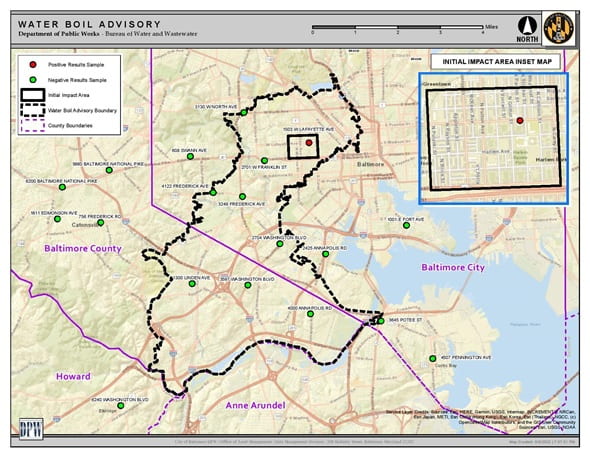Precautions Fruit and Vegetable Growers Should Take During a Boil Water Advisory
Neith Little, Carol Allen, Shauna Henley, UMD Extension
Current situation: The Baltimore City Department of Public Works has issued a Required Boil Water Advisory (solid line in the map below) for parts of Baltimore City, and a Precautionary Boil Water Advisory (dashed line in the map below) for a larger portion of the city and part of Baltimore County. E. coli has been identified in municipal water in the neighborhoods of Sandtown-Winchester and Harlem Park (solid line in the map below). For updates, check the Baltimore City DPW website: https://publicworks.baltimorecity.gov/node/22547

What steps should farms in the affected area take to protect worker and customer health?
Farms in the affected region are encouraged to take precautions to protect farmer and customer health when using municipal water for worker hygiene, crop irrigation, and post-harvest washing.
In most cases, it is probably impractical to boil all the water needed for farm operations. Instead, growers can either eliminate water contact with fruit and vegetables (and other food contact surfaces), or can treat the water with a food-safe sanitizer.
A factsheet on choosing a sanitizer is available from the Produce Safety Alliance, and a spreadsheet of sanitizer products is available for download from the UMD Produce Safety Team’s website (scroll down to week #32). If you use chlorine as a sanitizer, it is important to test the chlorine levels in the water to verify that you have achieved the correct concentration. An interactive online lab from New Mexico State University teaches growers how to do this correctly.
Continue reading Precautions Fruit and Vegetable Growers Should Take During a Boil Water Advisory